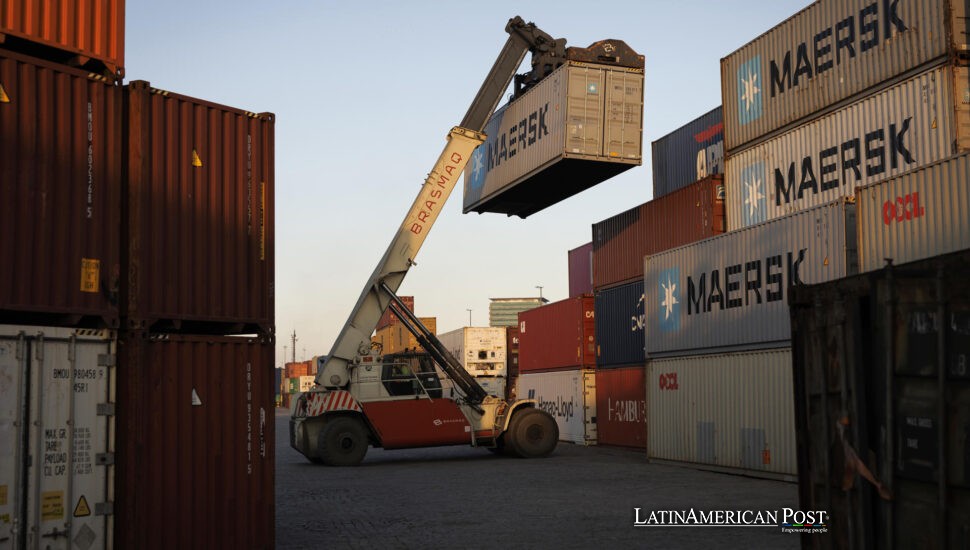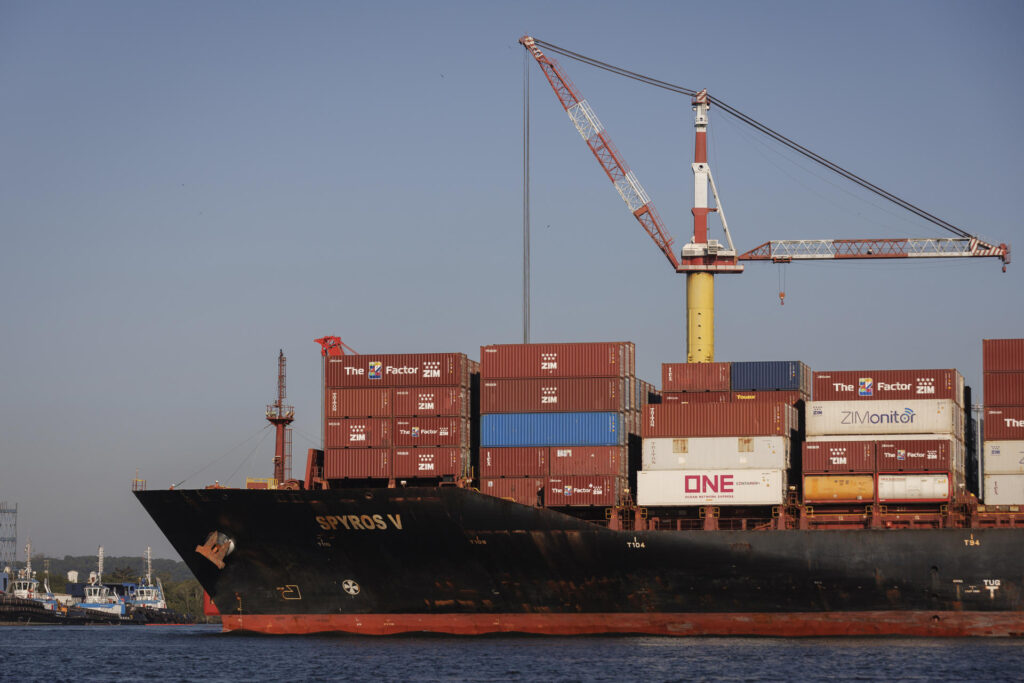Brazil’s Busiest Port Races Against the Clock as U.S. Tariff Threatens Coffee, Juice, and Trade Stability

As a sweeping new tariff looms from Washington, Santos—Latin America’s largest port—has become a blur of forklifts, tankers, and anxious exporters racing the clock. For Brazil, the next two weeks may define the future of its trade with the U.S.
A Lifeline Under Pressure
From his perch in the control tower, Anderson Pomini sees the numbers before the headlines. Thirty percent of Brazil’s foreign trade flows through the Port of Santos, and one in four containers is bound for the United States. When President Donald Trump announced a 50 percent tariff on key Brazilian imports, Pomini knew what it meant before most Brazilians did: pain, pressure, and an urgent recalibration of trade routes.
“It’s a blow,” he told EFE. “But not a knockout.”
His team immediately ran simulations. The models predicted sharp revenue dips through August, with a possible rebound if Asia, Europe, or the Middle East absorb the slack. But redirecting millions of tonnes of goods isn’t just about new buyers. It means rewriting freight contracts, retooling schedules, and persuading truckers to travel farther—all in real time, under global scrutiny.
“Every delay, every error costs us millions,” Pomini said. “And we’re not just moving containers. We’re carrying livelihoods.”
For now, Santos is holding together. But just barely.
Coffee and Juice on the Firing Line
In a refrigerated berth along one of Santos’s busiest piers, workers in sterile suits are loading frozen orange juice through chilled pipes into a massive white tanker. The product is headed for the United States, where, in less than two weeks, its price could spike by 45 percent.
It’s not just orange juice. Santos handles 95 percent of Brazil’s juice exports and 75 percent of its coffee beans. For American consumers, that means nearly 60 percent of their breakfast juice and a third of their coffee starts its journey here.
Until recently, Brazilian coffee was subject to just a 10 percent U.S. tariff—far below the rates on beans from Vietnam or Indonesia. The new blanket tariff erases that edge just as roasters are signing long-term contracts for the next harvest.
A port administrator, speaking anonymously to EFE, was blunt: “The American public could wake up without its morning coffee and orange juice.”
Economists at the port estimate that orange juice concentrate, currently valued at $1,600 per tonne, will jump to $2,400 after August 1. That leap could kill demand and strand stockpiles unless Europe or China picks up the slack.
In a world where breakfast commodities are part of political bargaining, Brazil’s groves and beans are suddenly on the front lines.

Scrambling Before the Storm
Rather than freeze shipments, the tariff has lit a fire under exporters. Trucks, forklifts, and customs brokers are rushing to push cargo out before the deadline.
“Companies are accelerating deliveries to beat the tariff clock,” Pomini said. “Next week, throughput could spike to record highs.”
Some Brazilian ports have reported chaos, with containers stalled due to hesitant insurers and customs confusion. Santos has, for now, avoided such bottlenecks. However, the challenge here is different: there is too much cargo and too little berth space.
To manage the rush, port authorities extended operating hours and convinced unionized stevedores to work overtime. Even with these measures, Pomini knows the frenzy can’t last. Once August arrives, a sharp drop in volume is likely, as exporters re-strategize and buyers test alternative U.S. ports, perhaps in hopes of finding a legal loophole or a future rollback.
The uncertainty is contagious. A $200 million cold-storage project at the port is now on hold. The logistics firm behind it told local media that it needs clarity on future export volumes before committing another dollar.
The frenzy is absolute. But so is the anxiety that follows it.
Brasília Prepares to Hit Back
Initially cautious, President Luiz Inácio Lula da Silva responded with diplomacy—but left no doubt that retaliation is on the table. His trade ministry has already prepared a list of counter-duties targeting U.S. exports of ethanol, aircraft parts, and farm machinery, industries with influential voices in Washington.
Officially, Lula’s team says they prefer negotiation over escalation. But behind the scenes, aides admit that a tit-for-tat tariff war could rock a fragile global economy already strained by interest rate hikes and geopolitical shocks.
There’s another layer of risk: Brazil hosts many multinational companies that assemble goods using U.S. components. Punishing Washington too severely could disrupt local industries, leading to layoffs and higher domestic costs.
With U.S. elections on the horizon and Brazil’s Congress equally distracted, a swift resolution seems unlikely. That leaves Santos and the rest of the country hovering between diplomacy and economic uncertainty.
Still, Pomini sees long-term strength in Brazil’s role as a top global supplier. “If the United States shuts one door,” he says, “we will open two more.”
But he also knows this tariff isn’t just about trade. It’s about identity. “Coffee and orange juice are part of the American breakfast,” he said. “And they’re part of our farms. If this tariff breaks that bond, people will feel it—not just in their wallets, but in their routines.”
Outside the shipping lanes, the crisis may seem abstract. But for the port of Santos, it’s happening now—in every truck roaring down the highway, in every container waiting for clearance, in every delay that costs more than money.
Also Read: How South America’s Rail Dream Could Reshape Global Trade
And as the clock ticks toward August 1, Brazil braces for a tariff designed in Washington but felt in every corner of its economy, from São Paulo’s stock exchange to a citrus grove in Bahia.




